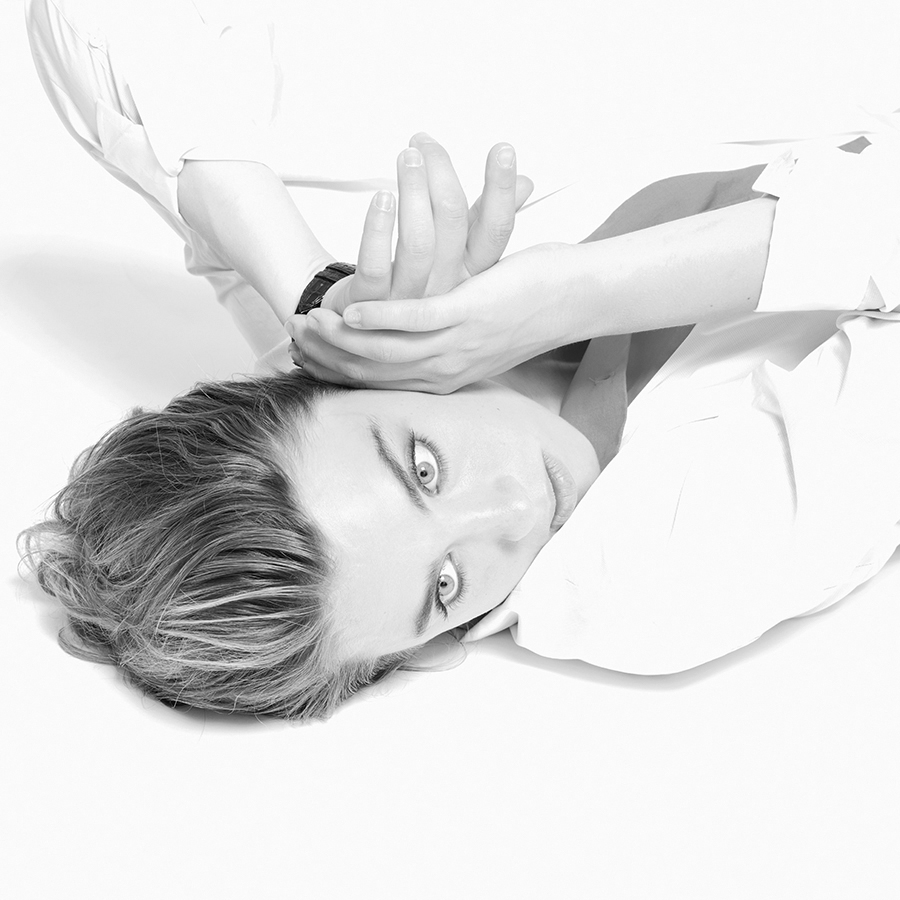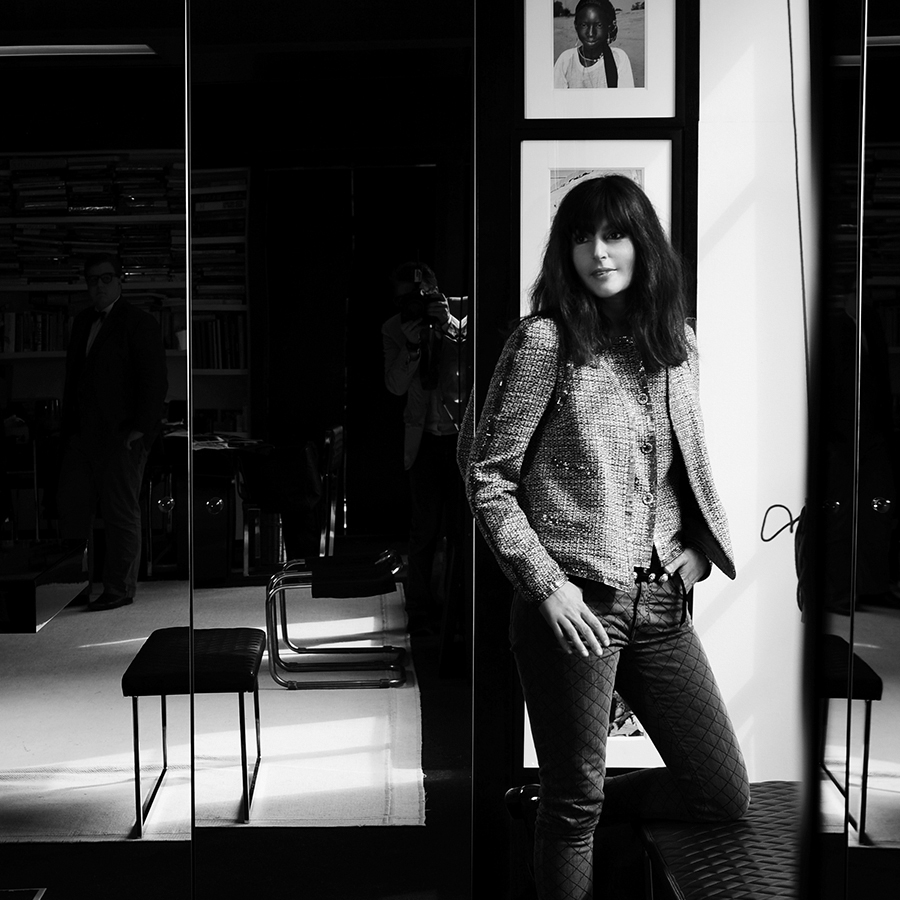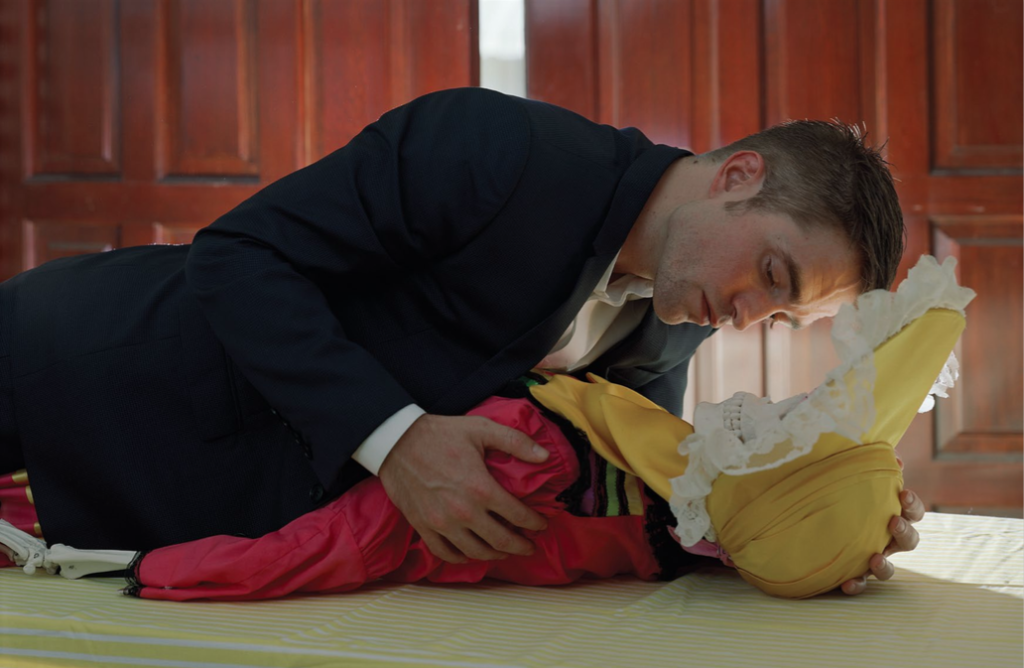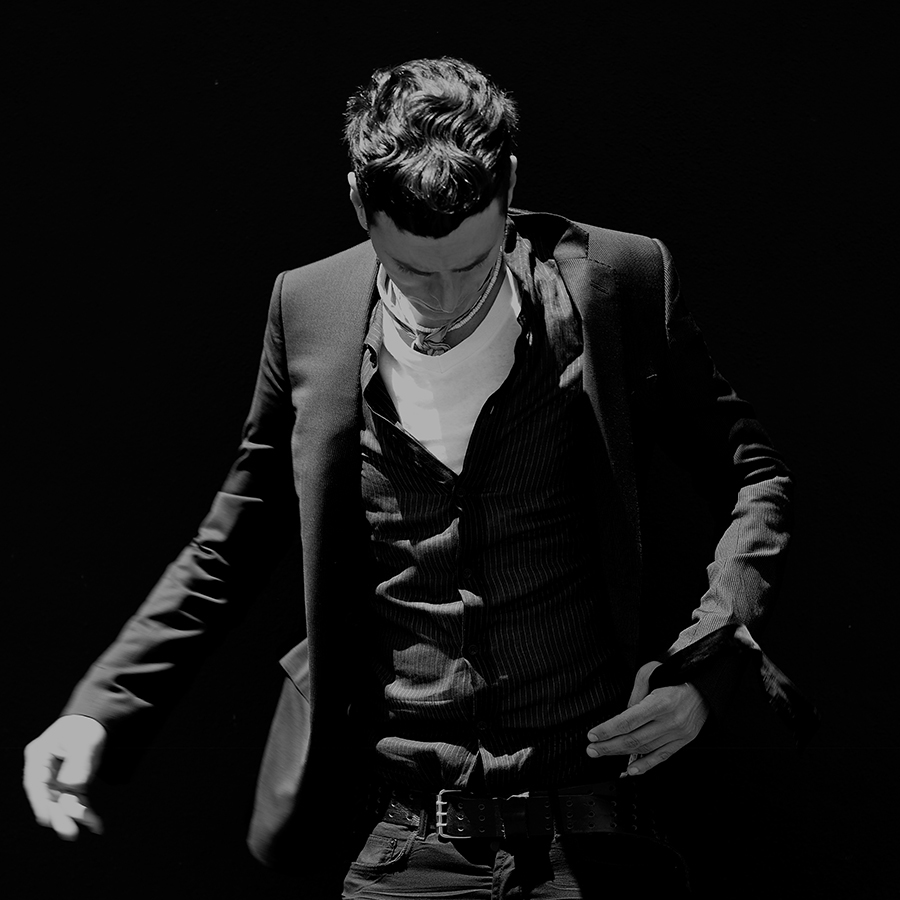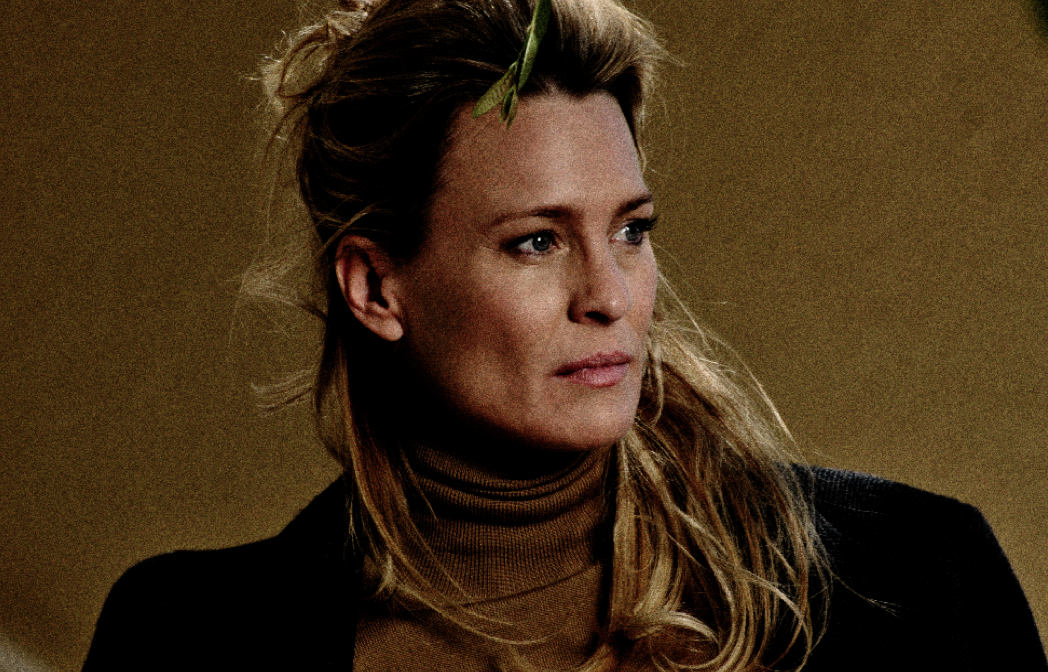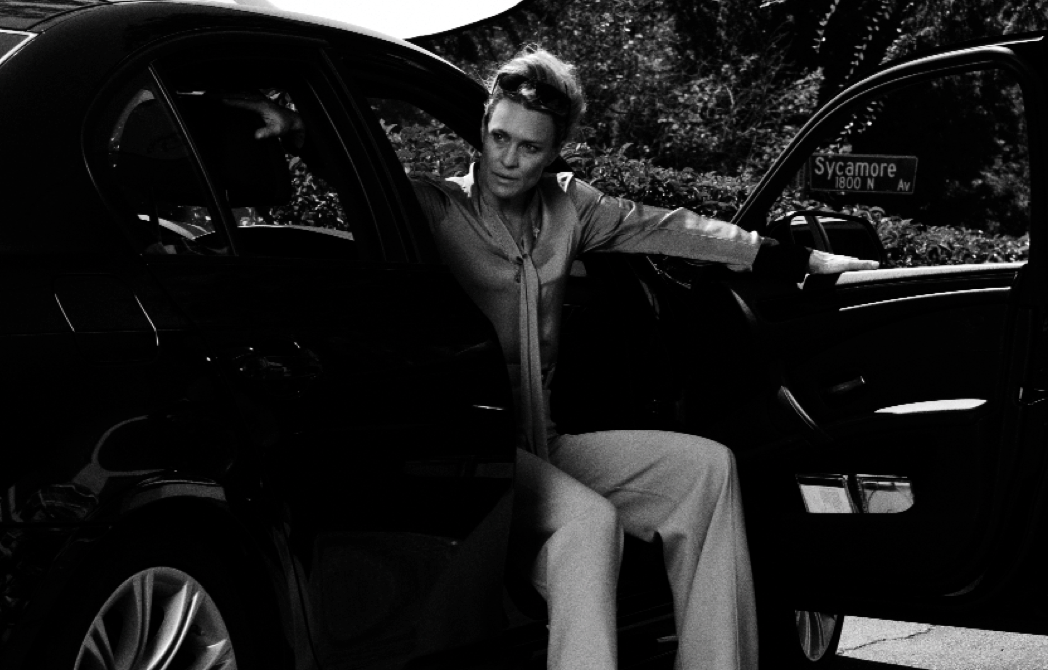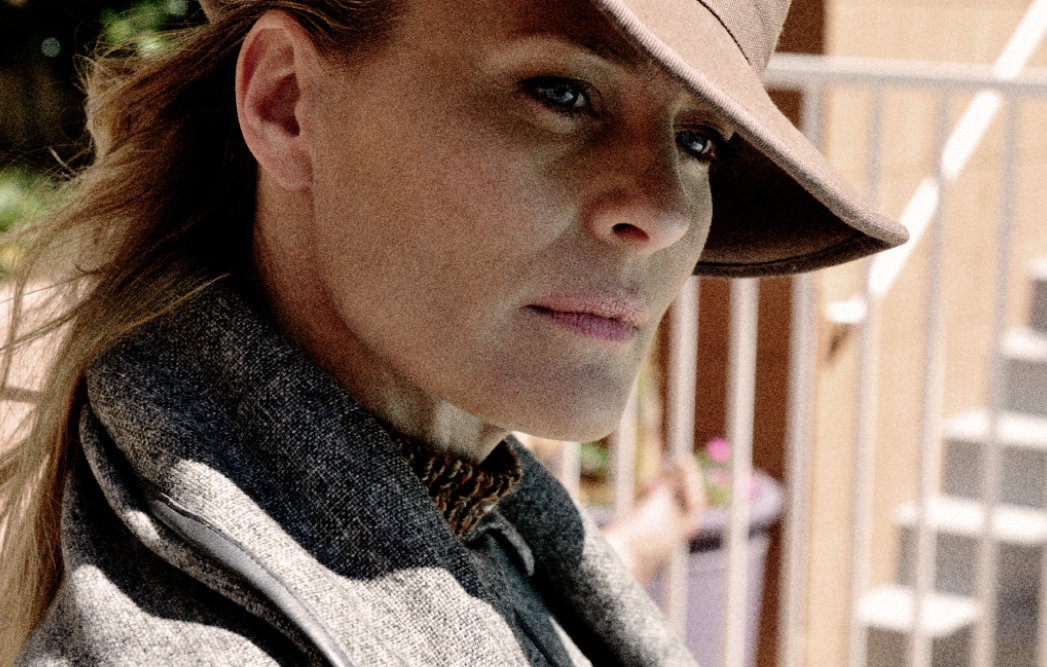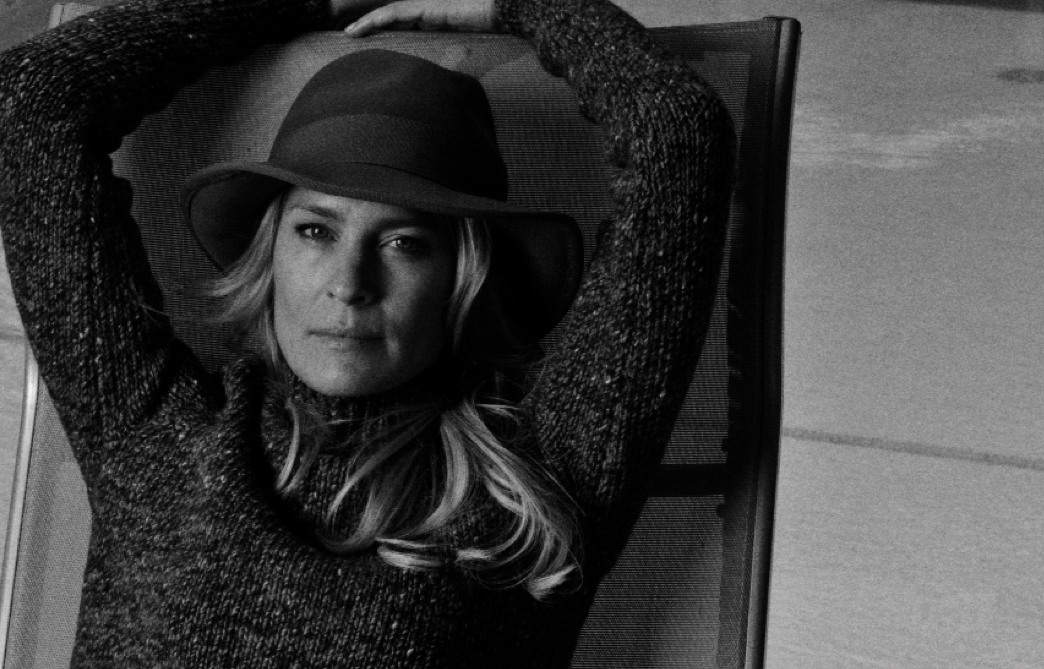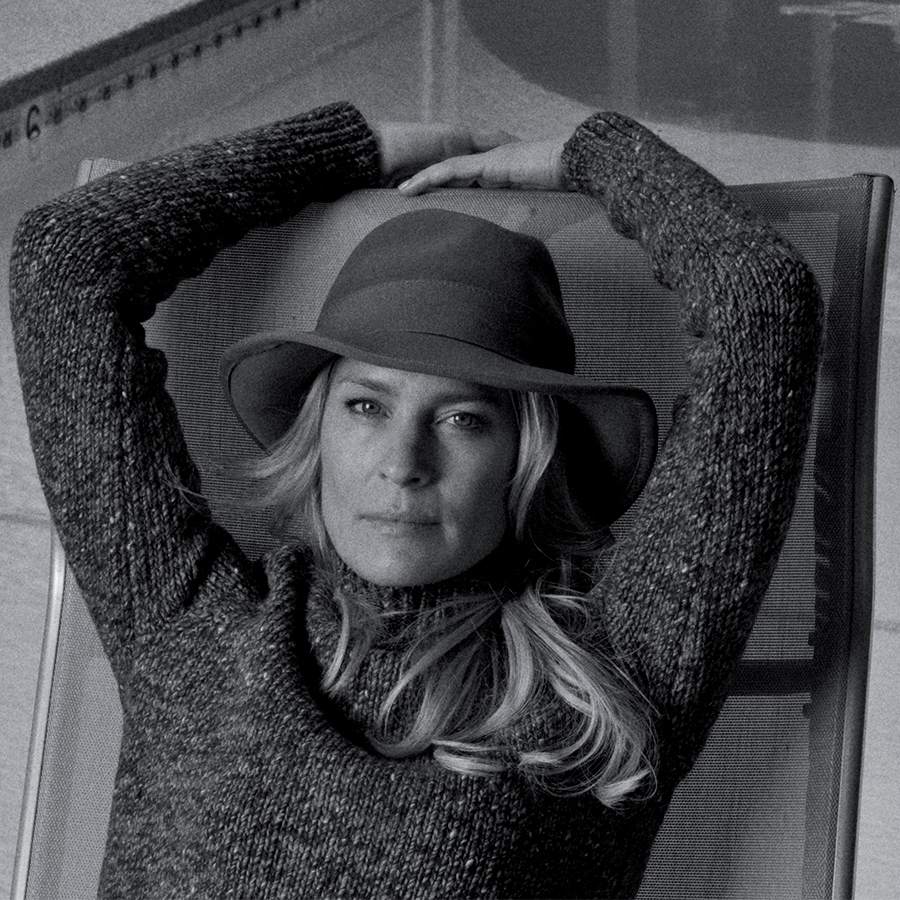
A MEETING BETWEEN ROBIN WRIGHT & ARMELLE LETURCQ
By Armelle Leturcq
On the occasion of the last season of House of Cards launching on Netflix, rediscover our interview with Robin Wright from our issue 54.
Robin Wright interview on women: Hollywood story. Robin Wright, radiant at a full forty is pursuing her career with new vigour. Like those who reinvent themselves, after having given herself to others she is getting into her stride and is now playing in Robert Redford’s new film, the conspirator, which follows hard upon an intense lead role in the private lives of Pippa Lee. Wanting to efface herself more than ever behind the characters she plays, the better to incarnate them, Robin, among other things, is working on a project to direct a documentary about the ills besetting the Congolese people. Meeting with a woman who has determined not to be dictated to by those around her.
Are you currently shooting?
Yes, but it’s over, it is only been a few days. It is called Moneyball, with Brad Pitt; I only have a couple of scenes. It was short and sweet, as we say here. It took place in Los Angeles.
Tell us your story: how did you begin in cinema?
It sort of started with modelling in Paris. I had done commercials in the States before I went to Paris, and then I was in an agency that did commercials and modelling, and when I came back from Paris, an agent from the theatrical department came over and said, I saw your commercials, and I saw that you can sing and dance, because I was a dancer before – I wanted to go to New York and be a professional dancer, but… Anyway, she saw the tips and she said would you be interested in acting? I said no! Pas du tout, pas du tout. It scared me, and she said, why don’t you try? She was an acting coach and became an agent, and took me under her wing. It was around 1983, and she said I want you to come in, you are going to read to this director, John Hughes, for his movie, The Breakfast Club. I went in and I read through, and they called me back ten times, and I read again and again. So I read for every John Hughes’s movie, and never got one of them. So it began there, pretty much; my agent really guided me through the beginning of my career, by taking me to auditions and helping me with my scenes, my voice, she was a kind of training ground before I got a job.
You first modelled and played in a soap opera, but you are now playing in more independent movies; how did this shift happen?
Santa Barbara, the soap opera, you were forced to do it on contract. So I had to fulfil my obligations with the show, and when I was on the show I got Princess Bride, I got that movie and so ran away for four months to go shoot in England, and as my punishment, because they had to rewrite the show, they made me die and come back to life… Because of that, they said you have to add one year to your contract. I was there for another year after Princess Bride, and then I did another movie, and because I did that movie they had to make me die again, I came back to life as a mermaid or something crazy, and they added another year to my contract. So I was there for four years. Once I got out of the show, I started in cinema, but I had already done two movies.
How do you choose your movies?
I guess if I had to say one thing, something meaty. It has nothing to do with independent or studio or sixty million dollar, or five hundred dollar movies, it has nothing to do with that. If I can do something with the role, if it moves me, if I can bring something to the character, then that is what’s fun about our craft. If you have nothing to do, and you are sitting there, and the character has nothing to do, I would rather not work.
You could be compared to Gena Rowlands, a beautiful woman not afraid to take risks in her career… Is she a model for you?
I had parts some time before I even knew about Gena Rowlands, but when I saw her in A Woman Under the Influence, wow! Of course, I would say her and Meryl Streep. I watched their films, and I remember responding to Meryl Streep and Gena Rowlands’ performances, the roles they chose, the characters they played, I responded as an adult whose job was acting. I was not looking through the eyes of a child, who just goes to the movies and gets popcorn. It was a different perspective. It is like wearing a fabric and saying well, I really like the feel of this trench coat, I really do not like the feel of this leather coat. I thought: I like their coat.
The Private Lives of Pippa Lee is a great film… Could you tell us more about it?
It was one of the greatest experiences in my career, definitely. It was one of the greatest roles I got to play; I’ve had a few really great roles. I was very lucky to get She’s so Lovely and Moll Flanders for instance, but this one I just thought the movie was fantastic also. Everything surrounding Pippa Lee… The writer and director, Rebecca Miller, is so gifted. I love everything that she does. That piece was a real gift because of her and the role that I got to play.
Was it difficult to play this troubled woman, married with a man much older than her?
Well, I totally believe that Alan Arkin and I could be together! I believe that in life! It is natural to me, it just seem to flow; Rebecca helped me so much, because I already had the book that she had written, and then I was becoming very close to her at the same time that we were trying to get money for the film, so it was just she and I for one year. We had Winona Ryder, who said ok, let me know when you are ready, and suddenly Julianne Moore came on, but we were not with the other actors in the rehearsal process. I had a real family with her, and we became friends, and by the time we got on the set I felt like I had already played Pippa Lee.
You are part of The Conspirator’s casting; is it the first time you worked with Robert Redford, who directed the film?
I played his daughter in one scene in a movie a long time ago, called The Last Castle. I wanted to work with him; I liked him, I think he is very smart, and he is a good filmmaker. In addition, there was again a meaty role there.
How would you define the film?
It is a humanistic film, not political. How we come to be different from one another, and how seeing the heart in another person opens up your mind to another possibility. The woman I play is the mother of John Surratt, and she was somehow connected with the assassination of Abraham Lincoln. All of the boys, my son and his friends, were associated in some way with the killing of our President; she ran a boarding house, and all of those men plotted the kidnapping of the President that ended up becoming an assassination by accident. She is basically wrongly accused of being a conspirator. The question is: did she know that her son or these boys were going to kill the President? No she did not. There are lot of nebulous questions and answers in the movie. It is very provocative.
How did Robert Redford direct his actors?
He is a storyteller while he directs you. He paints the whole movie, instead of giving you adjectives, like have more energy! or be sad!, and you are suddenly immersed in it, he is audibly talking to you. He is a real filmmaker who tells stories.
What is your project with David Fincher?
He is directing the first picture of the Millenium trilogy, The Girl with the Dragon Tattoo. Daniel Craig, Rooney Mara who is playing the Girl with the Dragon Tattoo and myself had to sign for all three pictures, but we do not know yet who will direct the second and the third one.
You have a project to shoot a documentary about Congolese women?
I would like to go there, because a documentary has already been made, The Greatest Silence. I was travelling there and helping an organization that deals with Congolese women, and when I saw the documentary I was so inspired to do something. It is about spreading awareness of why this is going on, why this violence against women still exists. Because of a mineral, a natural resource that the Congo has; their husbands are taken and recruited for the militia, because this mineral is in every single cell phone, computer, toaster, etc. It is a mineral that we all use every single day in our appliances and our gadgets; basically, by being the consumer, we are fuelling this war and do not even know it! I would like to get that information out there. I know a lot of people know about it, but I think it needs to be blasted. If we get enough people to write letters or stand up to the companies that make our cell phones and our computers, and say do you know? We know that the mineral you use to make all of these things can be found somewhere else in the world, where people will not be killed for it. It will be ten cents more, you can buy it in Australia for example, but you do not have to kill people just to get this. It seems so simple and I know it is not because it is corporate, and it’s all about money, convenience and simplicity but it’s so enormous, what them saving ten cents is doing to that country! So I would like to do something.
Do you consider yourself a feminist? What does feminism mean?
When I think about other countries, if we talk about the Middle East, or the thing I just mentioned, do I have to call it feminist? I think I am being human. I do not necessarily think it is about gender, I think men would think the same way, even if in the Middle East they obviously do not. The term is so dated in a weird way, but I would say yes, I am a feminist when I know that for the same position we still get paid less than men. We need to change because women are definitely moving into positions in a man’s world.
Was it difficult to combine your career with your family life?
It was difficult, but what made it less difficult is that I never worked when my children were young. I worked once a year during summertime, with the exception of a few films. I think it is more difficult on the children!
How did your collaboration with Gerard Darel start?
I met Charlotte Gainsbourg’s agent, because I am a friend of Charlotte’s, and I had never considered it before, and I thought the line was very classy. I felt dignified; it has integrity. I like the clothes. I just love everybody that works there. Peter Lindbergh shot, and we had the greatest time working together. What a beautiful new family to have in the workplace! It is very rare to have that; it is a gift.
Interview from Crash #54
Photography: Sam Samore
Fashion: Rebecca Welch
Talent: Robin Wright
Hair: Paul Norton @Nexxus Artist, with Timothy Triano
Make-up: Lauren Anderson @The Wall Group / Crosby Carter
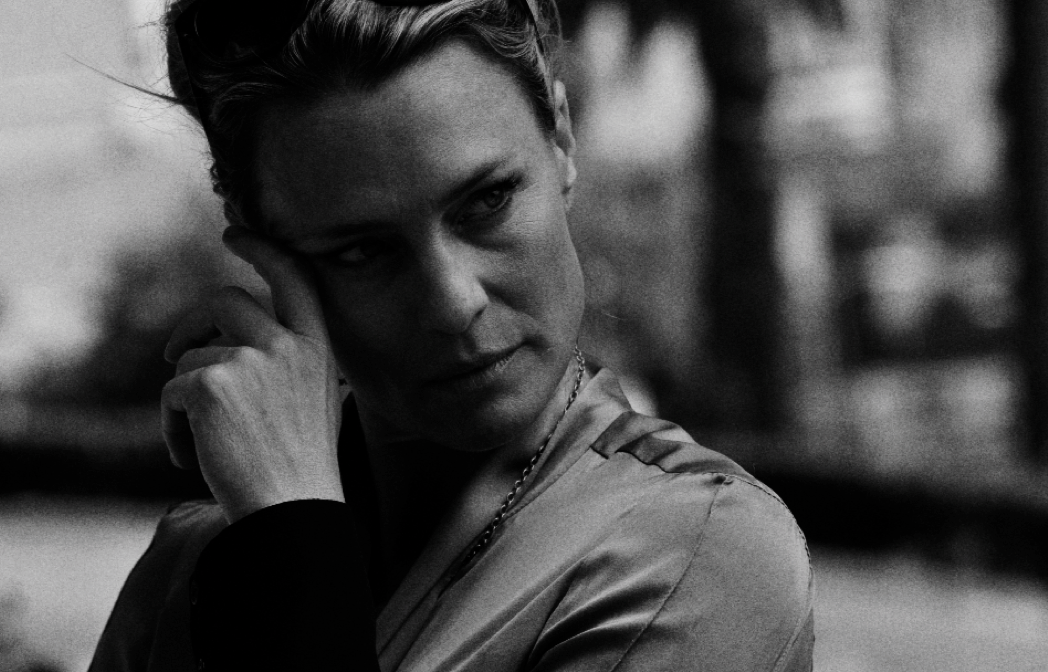
STELLA MCCARTNEY Camel silk blouse BARTON PERREIRA Sunglasses KARA ACKERMANN DESIGNS GemGirls Charm Necklace
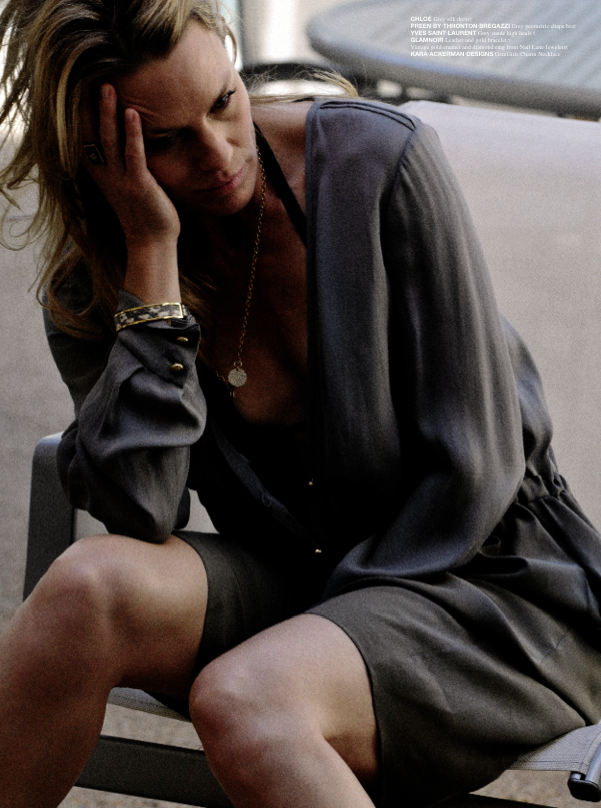
CHLOÉ Grey silk dress PREEN BY THRONTON BREGAZZI Grey geometrie shape bra YVES SAINT LAURENT Grey suède high heels GLAMNOIR Leather and gold bracelet Vintage gold and diamond ring from Nail Lane Jewelers KARA ACKERMAN DESIGNS GemGirls Charm Necklace
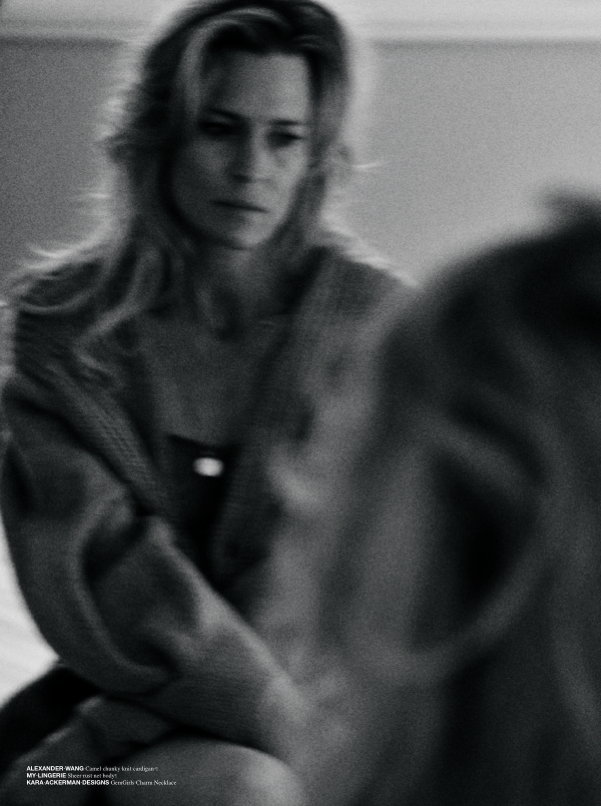
ALEXANDER WANG Camel chunky knit cardigan MY LINGERIE Sheer rust net body KARA ACKERMAN DESIGNS GemGirls Charm Necklace






